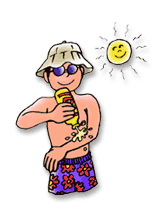- Find a Doctor
-
For Parents
- Before Your Visit
- During Your Visit
- After Your Visit
- More Resources for Parents
Patient & Visitor Resources -
Services
- Locations
-
About Us
- About Childrens
- Find it Fast
- Additional Resources
Find it FastAdditional Resources - MyCHP
ALERT:
There is construction in and around UPMC Children’s Hospital that is affecting the traffic flow – please allow for extra time traveling into the hospital.
- Find a Doctor
- For Parents
-
Services
-
Frequently Searched Services
- Asthma Center
- Brain Care Institute (Neurology & Neurosurgery)
- Cancer
- UPMC Children's Express Care
- Ear, Nose, & Throat (ENT)
- Emergency Medicine
- Endocrinology
- Gastroenterology
- Heart Institute
- Genetic & Genomic Medicine
- Infectious Diseases
- Nephrology
- Newborn Medicine
- Primary Care
- Pulmonary Medicine
- Rheumatology
- Surgery
- Transplant Programs
- See All Services
-
Frequently Searched Services
- Locations
- About Us
- MyCHP
- I Want To
- More Links









 Although the sun feels good, its ultraviolet (UV) rays can cause sunburn whenever you're out in the sun too long. Even with gradual exposure, tanning may be the skin’s response to sun damage and is not necessarily healthier. UV rays can cause serious diseases, such as skin cancer and damage to eyes.
Although the sun feels good, its ultraviolet (UV) rays can cause sunburn whenever you're out in the sun too long. Even with gradual exposure, tanning may be the skin’s response to sun damage and is not necessarily healthier. UV rays can cause serious diseases, such as skin cancer and damage to eyes.